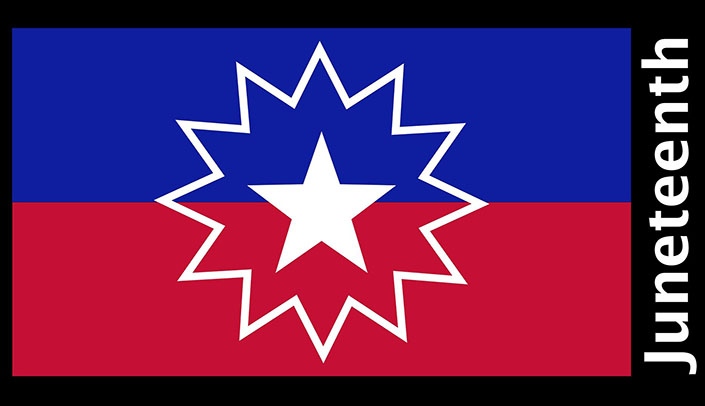To mark Juneteeth, UNMC Interim Director of Inclusion Sheritta Strong, M.D., discussed the holiday.
What does Juneteenth recognize?
Juneteenth is formed from the words “June” and “19th,” because June 19, 1865, is what we recognized as the true date that slaves were freed. The Emancipation Proclamation by President Abraham Lincoln, which became official on Jan. 1, 1863, was supposed to free the slaves. Freedom was finally granted during the end of the Civil War, and Juneteenth marks the day when General Gordon Granger and the Union soldiers occupied Galveston, Texas, and announced that slaves were now free. There were a variety of emotions from shock, fear, and jubilation to the idea that they had choices in their lives that they never had before. Some chose to stay and work for their former “masters” and some chose to flee with nowhere to go.
More information
- Read about the history of Juneteenth in Nebraska at North Omaha History.
- Read a national history of Juneteenth at the National Registry of Juneteenth Organizations and Supporters.
- Despite being freed by the Emancipation Proclamation, in the state of Nebraska, there is still a law in the constitution that allows people to be enslaved as punishment for a crime.
How was it first celebrated?
Despite the variety of feelings, there was a sense of jubilation and the need to celebrate. Parties, barbecues, and church services were held, and there was a focus on how to pursue the so-called “American Dream.” Former slaves were freed to do things that they were restricted from doing such as praying, gathering, reading.
It’s not as recognized now as it once was due to limited education on slavery and Juneteenth in the classroom and textbooks. With more awareness, we’re bringing it back to the forefront.
It hasn’t been as big a deal in the American culture. Many hope that this will continue to change, especially in the current climate. As a nation, we typically celebrate the Fourth of July during this time of year. But from an African-American history standpoint, while we were independent as a nation, the slaves weren’t independent — we weren’t free as a people. So there has been a lot of conversation over the years about how we’re celebrating the American holiday, but not fully celebrating the day we were truly freed from slavery.
How is it celebrated today?
In 2011, under the direction of State Sen. Brenda Council, Nebraska recognized Juneteenth as a State Holiday via Resolution LR351.
Due to COVID-19, it’s not being celebrated as we normally would. One of the events that we have had in recent years in Omaha is a Juneteenth parade, sponsored by the local branch of the NAACP and other community partners such as the Empowerment Network, Urban League and Charles Drew Health Center.
The parade is probably the most well-known event, but there are other events held throughout the city — including community service events, barbecues and church services.
In Omaha and Lincoln, there are rallies this weekend.
Also, the media doesn’t always depict safe practices in their news and video reports of these events. At the rallies that I have attended, 95% or more attendees were wearing masks. For those who weren’t wearing masks, we brought a few and the event organizers were passing them out.
Given the current climate, does the day take on more significance this year?
I would say yes. In the current climate, we’re all pausing to reflect on the practices we have as a country. We are talking about structural racism and modern-day slavery. We were freed in 1865 and we are supposed to be equal, right? But as many of us understand, those rights are good on paper, but aren’t equal in terms of laws, policies and the way our country is set up. So even though we’re freed from slavery as we know it historically, there are so many things in place right now that still keep blacks as well as other minorities in “bondage.”
Has UNMC marked Juneteenth in the past?
I don’t recall anything, but this is a great idea.

Thank you for this!
UNMC collectively is learning and growing. Thank you for your leadership, Dr. Strong!
Very well said!
Thank you Dr. Strong!
Thank you for this informative and thought provoking article. This is an important day in our history to recognize.
Thank you for sharing, Dr. Strong. What a beautiful way of honoring the past and future.
Thank you for this information, Dr. Strong!
Great overview, thanks for providing this for our UNMC community!
Great article, I appreciate the information educating people on the true meaning and history of Juneteenth. Thank you.